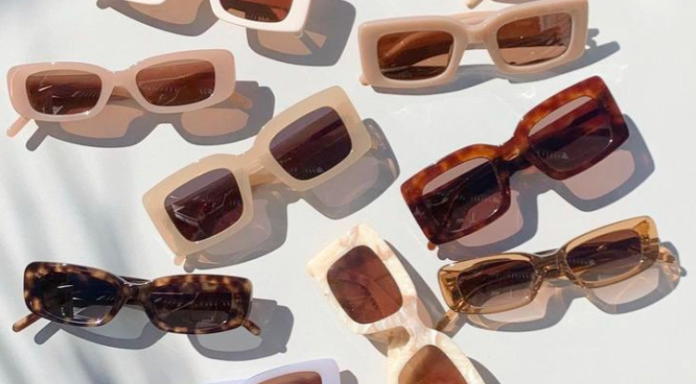When it’s about protecting your eyes from harmful effects of sun, the first thing we think is sunglasses. They are not only protecting eyes from UV rays, but also improve vision clarity and reduce glare. However, there is some debate that sunglasses can prevent production of melanin, which is natural defense mechanism of skin from sun rays.
Melanin is a pigment and gives color to your eyes, hair and skin. It produces by melanocytes cells, which are located in all parts of body. Melanocytes produces more melanin when expose to UV radiation. Here can come question that is wearing sunglasses can suppress melanin production, making you more susceptible to sunburn and to other skin damages? Let’s see the answer.
Understanding Melanin Production
The Role of Melanin
Melanin is a natural pigment that gives color to skin, hair and eyes. Its produced by melanocytes of outer layers of your skin. It plays crucial role in protecting from harmful effects of UV radiation. Melanin is a natural sunscreen which is absorbing and dispersing ultraviolet rays and preventing from deeper penetration.
There are two main types of melanin: eumelanin and pheomelanin. Eumelanin responses for brown and black pigmentation. Pheomelanin response for yellow and red pigmentation. Melanin type and amount in your body determines by your genetics. Fair skins produce less melanin than darker skin. That’s why people with fair skins more susceptible to skin damage and sunburn.
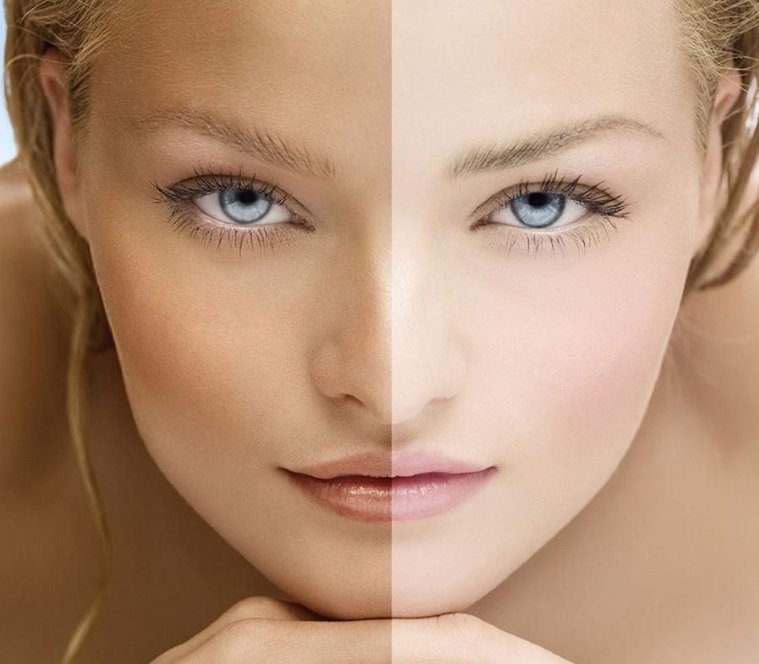
Factors Influencing Melanin Production
There are some factors which influence melanin production:
- Sun exposure: Sun exposure stimulates melanin production. It’s because of it you tan while spending time in sun. But excessive sun exposure can damage your skin or sunburn.
- Age: By aging, body produces less melanin, and it can lead to susceptible skin to sun damage.
- Hormones: Hormonal changes, such as during pregnancy or menopause, can affect to melanin production.
- Genetics: Your gene plays an important role in determining melanin amount in your body.
- Skin damage: Acne, injury or other skin damages can affect to production of melanin.
So we should note that wearing sunglasses doesn’t interfere with melanin production. Although it’s true that production of melanin is stimulated by sunlight, for example, closing eyes with sunglasses can’t stop the process. Melanin production happens in skin cells and covering eyes can’t hinder reaching sunlight to these cells. Thus, sunglasses don’t prevent melanin production.
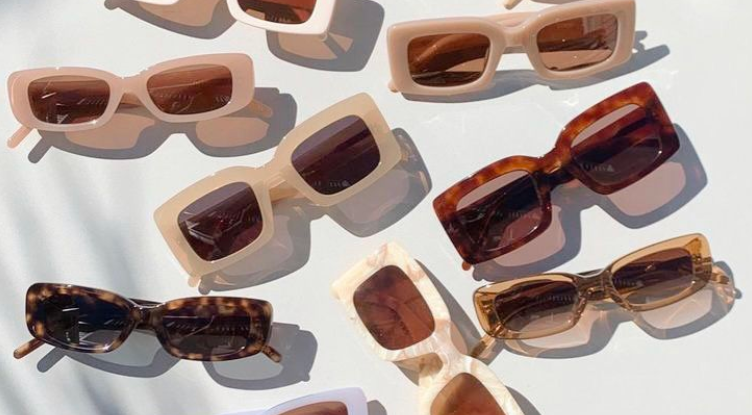
The Effect of Sunlight on Melanin Production
UV Radiation and Melanin
Skin exposure triggers production of melanin, which gives color to your skin and protects it from UV radiation. UV radiation is energy type that comes from sun and cause damage to your skin cells. Melanin consume this energy and converts it into heat to prevent skin damage. There are two main types of UV radiation: UVA and UVB. UVA radiation enters deep into your skin and cause early aging. UVB radiation responsible for sunburns. Melanin protects from both radiations, but most effectively blocks UVB radiation.
Melanocytes are special cells of melanin production and it initiates more melanin while your skin exposes to UV radiation. Melanocytes cells located in bottom layers of skin and responsible for melanin production and distribution throughout the skin. And of course, more melanin produces, darker skin you will became.
However, wearing sunglasses doesn’t prevent production of melanin. Sunglasses can protect your eyes from UV radiation but they don’t cover your face enough to protect sunlight from hitting you. Melanin production stimulates by sunlight hitting cells, that’s why covering eyes doesn’t stop this process. In fact, its suggested wearing sunglasses that they can increase sunburn risk. Sunglasses can prevent melanin production around your eyes, which will reduce production of vitamin D and increase sunburn risks. It’s important to get enough vitamin D through safe sun exposure or supplements, because it maintains healthy bones and immune function. Overall, better use other forms of sun protection, such as sunscreen, seeking shade while peak sun hours, wear protective clothing to reduce sun damage risks or skin cancer. Because wearing sunglasses will protect only your eyes, not whole body skin.

Role of Sunglasses in Protecting Eyes
Sunglasses are an essential accessory while protecting eyes from harmful sun effects. They not only emphasize your style, but also provides your eyes with much-needed protection from UV rays of sun. In this section, we will discuss about protecting your eyes, and preventing melanin production with sunglasses.
UV Protection Properties
Main primary function of sunglasses is to protect your eyes from harmful sun rays. UV radiation can damage eyes and lead to eye problems, such as cataracts, macular degeneration, and photokeratitis. Photokeratitis is painful condition when cornea exposes to UV radiation and lead to discomfort and temporary vision loss. Sunglasses with UV protection can block up to 99% of UV rays, but it depends sunglasses brand, type and quality. They providing your eyes with necessary protection against UV rays. So it’s better to look for sunglasses that provide UVA and UVB protection to ensure protection from both types of UV radiation.
Polarization
Polarized sunglasses are another type of sunglasses with a specific filter which blocks glare. Glare which caused by light reflecting off surfaces like water, snow, or pavement can also harm your eyes and lead to eye strain or fatigue. Polarized sunglasses will reduce glare, make it easier to see clearly in bright sunlight. They can also reduce eye strain and fatigue and improve your visual comfort.
Tinting
Tinted lenses sunglasses provide necessary eye protection from harmful sun rays. They help reduce the amount of light which enters your eyes, and improve visibility in bright sunlight. In addition, they reduce glare and increase overall visual comfort. Therefore, when choosing tinted sunglasses, need to consider color of the lenses. Different colors provide different benefits. For example, gray lenses provide natural color perception, while brown lenses significantly improve contrast and depth perception.
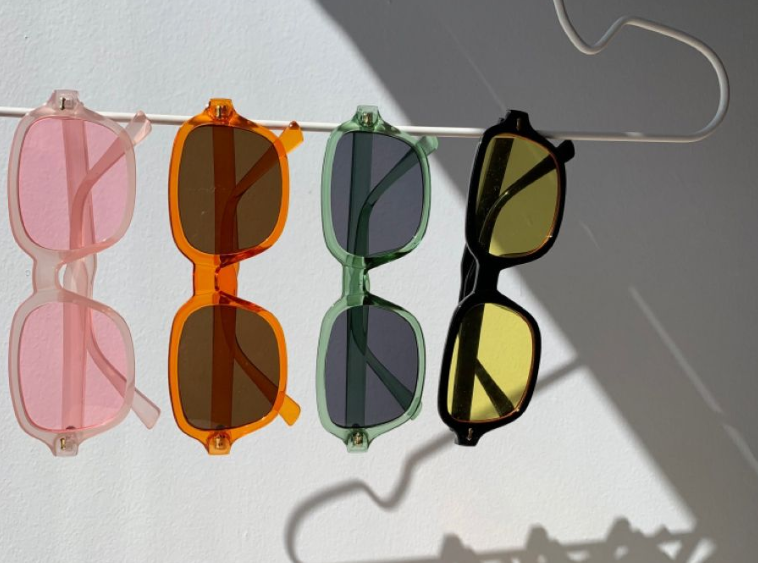
Scientific Studies and Research Findings
Several scientific studies have been conducted to explore the relationship between wearing sunglasses and melanin production. One study published in the journal Molecular Oncology Group found that sunglasses not only protect the eyes from harmful UV radiation but may also prevent melanoma of the eyes. The study showed that exposure to UV radiation can cause DNA damage and mutations, leading to the development of melanoma. The researchers concluded that wearing sunglasses can reduce the risk of developing melanoma of the eyes by blocking UV radiation.
Another study which published in Nature found that sunglasses can reduce risk of developing skin melanoma. Study shows UV exposure can lead to damage of DNA and increase risk of skin cancer. The conclusion was that wearing sunglasses will block UV radiation and reduce skin cancer risk.
However, we should note that wearing sunglasses doesn’t interfere with the production of melanin. Melanin produces by melanocytes and response to UV radiation. Sunglasses doesn’t block all UV radiation, and some UV rays can still enter into eyes and skin. In fact, Full Fact journal’s study refuted claim that sunglasses prevent production of melanin. The study found that covering eyes with sunglasses doesn’t stop process because melanin production promotes by sunlight hitting to skin cells. Melanin lowers synthesis of vitamin D, but sunglasses doesn’t influence skins vitamin D production.
In conclusion, sunglasses can reduce the risk of developing melanoma by protecting eyes and skin from harmful UV radiation. However, it doesn’t hamper production of melanin. The important thing is to wear sunglasses that block UVA and UVB radiation and usage of other sun protection measures such as clothing, hats, and sunscreen to reduce harm to your skin.
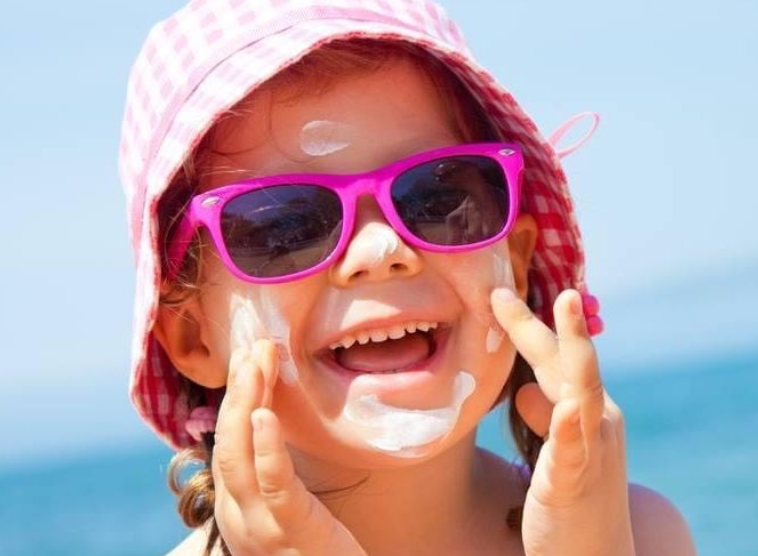
Conclusion
In conclusion, whether or not wearing sunglasses prevent melanin production is conflicted information. Some sources suggest to wear sunglasses as they inhibit melanin production, but others claim covering eyes doesn’t stop sunlight hitting and stimulation of melanin production.
Need to note that melanin takes crucial part in protection of skin from UV damage, and sunburn risks increase by reducing melanin production. Therefore, its recommended to wear sunglasses with UV protection to prevent sun damage, or other sun protection forms such as sunscreen, protective clothes.
Eventually, decision about wearing sunglasses should be based on personal comfort or preference. If you choose to wear sunglasses, make sure that they provide good UV protection and prevent sun damage of your eyes.

